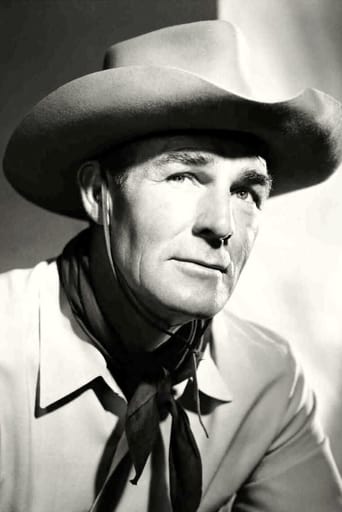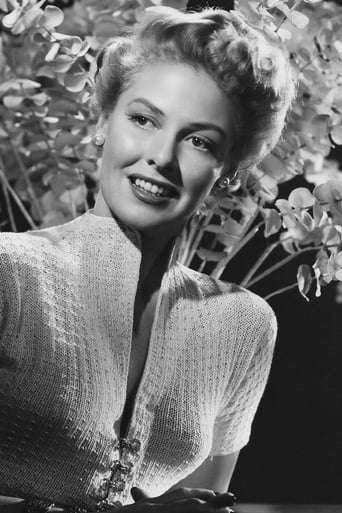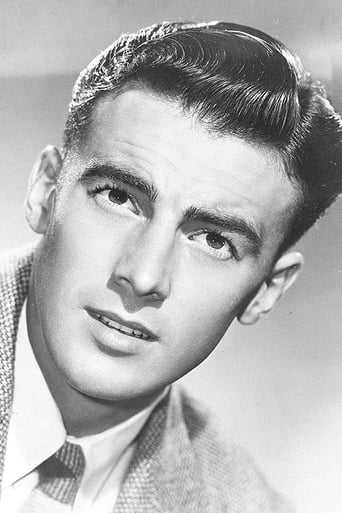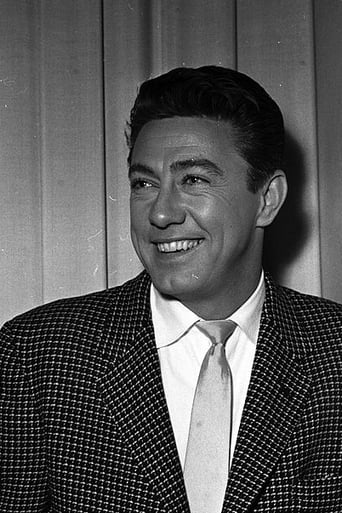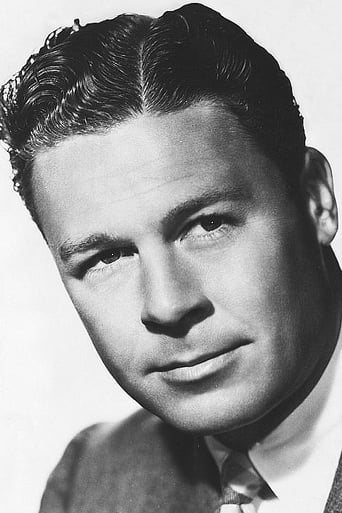JohnHowardReid
Randolph Scott (Britt Canfield), Janis Carter (Judith Chandler), Jerome Courtland (Terry Canfield), Peter Thompson (Tom Canfield), John Archer (Clint Canfield), Warner Anderson (Dave Baxter), Roy Roberts (Cole Sanders), Billy House (Luke Plummer), Olin Howlin (Dan Dugan), Allene Roberts (Ella Sue), Jock O'Mahoney (aka Jock Mahoney) (Crake), Harry Cording (Moore Legrande), Sven Hugo Borg (Swede Swanstrom), Frank Ferguson (Marshal Bat Masterson), Irving Pichel (Harned), Harry Tyler (Rusty), Chief Thundercloud (Chief Longfeather), Paul E. Burns (Uncle Dick Wootton), Reed Howes, Charles Meredith, Paul Stanton, Richard Cramer, William Haade, Francis McDonald, Frank O'Connor, Harry Tenbrook, James Mason, Guy Wilkerson, Frank Hagney, William Tannen, James Kirkwood, Stanley Blystone, Edgar Dearing, Al Kunde, Art Loeb, Blackie Whiteford, Bud Fine, Richard Fortune, Lane Chandler, Charles Evans, Chuck Hamilton, George Sherwood, Louis Mason, Roy Butler, Ralph Sanford, William McCormack.Director: IRVING PICHEL. Screenplay: Kenneth Gamet. Based on the 1945 book Santa Fe: The Railroad That Built an Empire by James Leslie Marshall and the story All the Brothers Were Loyal by Louis Stevens. Photography in Color by Technicolor by Charles Lawton Jr. Film editor: Gene Havlick. Art director: Walter Holscher. Music composed by Paul Sawtell. Music director: Morris W. Stoloff. Producer: Harry Joe Brown. Executive producers: Harry Joe Brown, Randolph Scott. A Scott-Brown Production. A Columbia Picture.Copyright 13 March 1951 by Producers Actors Corp. Released by Columbia Pictures Corp. New York opening at the Palace: 3 May 1951. U.S. release: 1 April 1951. U.K. release: 1 October 1951. Australian release: 4 January 1952. 7,926 feet. 88 minutes. Censored to 7,770 feet (86 minutes) in the U.K.SYNOPSIS: After the Civil War, the four Canfield Brothers, veterans of the Confederate Army, go West. Britt Canfield (Randolph Scott) becomes assistant to Santa Fe R.R. construction chief Dave Baxter (Warner Anderson), and falls in love with beautiful paymaster Judith Chandler (Janis Carter). Britt's brothers, Terry (Jerome Courtland), Tom (Peter Thompson) and Clint (John Archer) join an outlaw gang.COMMENT: Randolph Scott's fans will not complain, but this agreeably photographed but laboriously routine western is not one of his more appealing outings. True, the movie packs in plenty of action, but it's rather dull in between these well-directed spurts, leaving audiences to twiddle their fingers or talk among themselves or visit the refreshment counters, while they wait, none too patiently, for the plot to gear up and the screen to light up with more fighting, shooting, stunts and thrills.STORY BACKGROUND: On 22 December 1872, pioneering Santa Fe railroad construction crews completed laying tracks across Kansas to what they thought was the border of Colorado. Upon actual completion depended land grants from the United States government which would permit the road to continue to the Pacific Coast. They thought they had reached the Colorado line with 48 hours to spare.That night, to the horror of the construction engineer, it was discovered that the Santa Fe's surveyor had erred by four miles. The government's surveyor insisted that the State of Colorado lay four miles beyond the end of the Santa Fe tracks. To insure completion of the road, and to avoid bankruptcy, tracks would have to be laid over those four miles within 48 hours. Since the crew had been averaging only one mile a day, the feat was thought impossible — but the railroaders set to work.Beset by Indians, outlaws, gamblers and drunks, the crew completed the Santa Fe to Colorado by Christmas Eve, within one minute of the contract's expiration.In the film, Randolph Scott plays the construction chief responsible for the completion of the job. For the movie, the feat was accomplished not in Kansas but in Arizona where location scenes of Santa Fe were filmed. While no government franchises were at stake, the movie railroaders hewed to a rigorous schedule, under director Irving Pichel and producer Harry Joe Brown. — Columbia Publicity.OTHER VIEWS: Unexceptionable. — Monthly Film Bulletin.
Spikeopath
Santa Fe is directed by Irving Pichel and adapted to screenplay by Kenneth Gamet from the James Marshall novel and a story by Louis Stevens. It stars Randolph Scott, Janis Carter, Peter M. Thompson, Jerome Courtland and John Archer. A Technicolor production, it's photographed by Charles Lawton Jr. Story is set following the American Civil war and finds Scott as Britt Canfield, one of four ex-Confederate brothers heading West for a new life. While Britt finds honest employment on the Santa Fe railroad, his brothers veer towards the other side of the law.A routine Western boosted by some quality set pieces and a well crafted script. Watchable from the off, film follows a true course whilst launching off narratively from the bitterness still felt by those who were on opposite sides of the war. It pitches Scott front and centre as the stoic character fending off all sorts of challenges, challenges that come courtesy of Indians, rival companies and his own kin! The acting around Scott is pretty average, tho the comic relief from Billy House & Olin Howland is most appealing, while it would have been nice to have some more imposing scenery filling out the screen. All told it's a safe recommendation to Western fans, even if ultimately it's not a genre film to revisit often. 6/10
